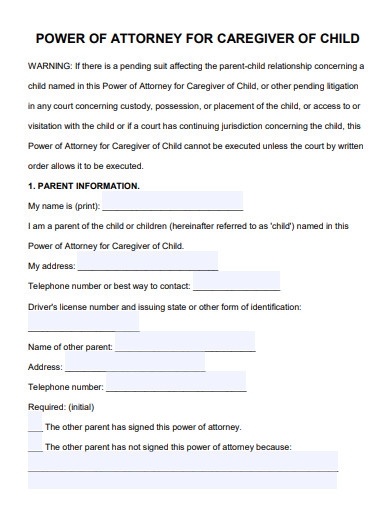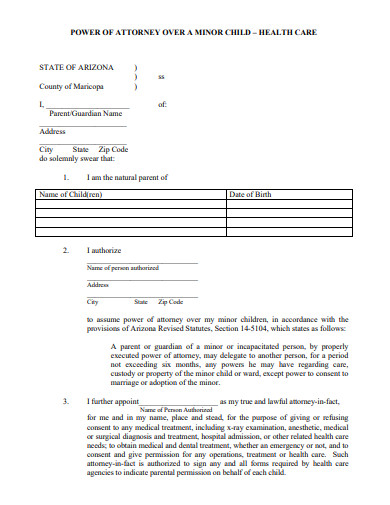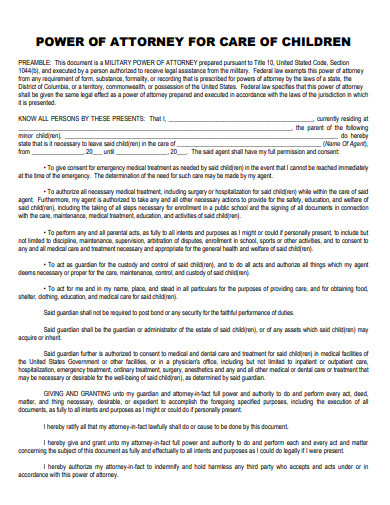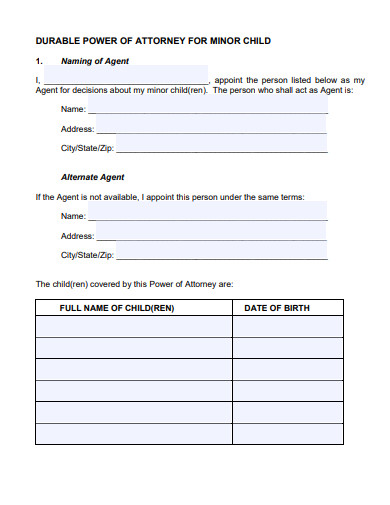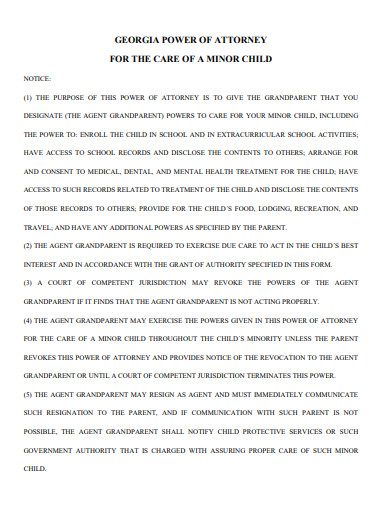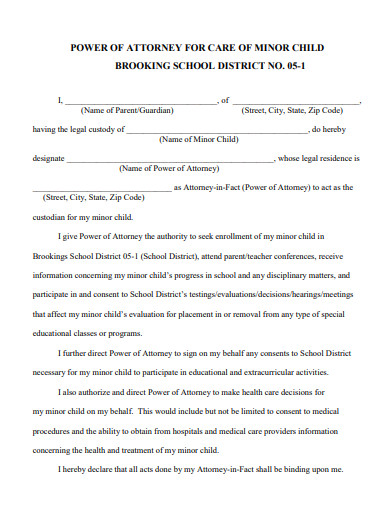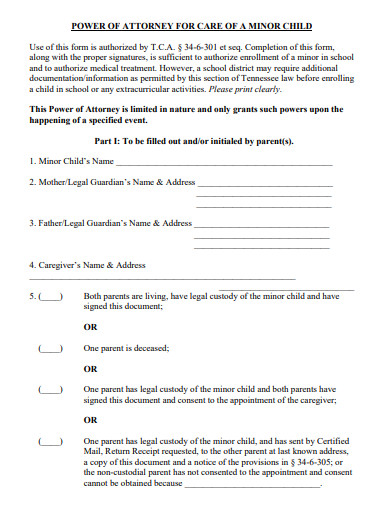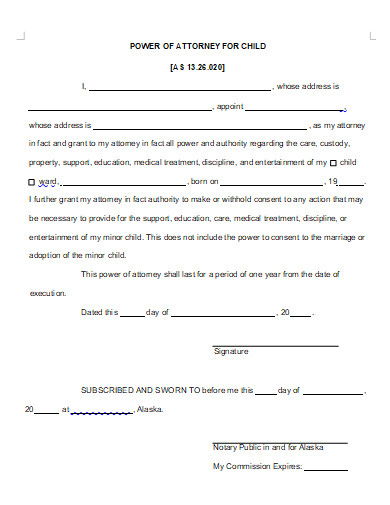Power of attorney is a common legal tool that can be used when the principal is unable to sign important documents due to a short-term or long-term illness or disability. A power of attorney can be revoked for a variety of reasons, including the principal’s decision to revoke or their death, the agreement is ruled invalid by a court, or the agent being unable to perform the tasks listed in the agreement. If the couple who signed the consent divorces, the consent may be rendered invalid.
When a principal is unable to sign important documents due to an illness or disability that may last for a short or long period of time, a power of attorney can be used. A power of attorney can be terminated in a variety of ways, including the principal regaining control of his or her affairs, the agreement is declared invalid by a court, or the agent being unable to perform his or her duties. A power of attorney, on the other hand, can be revoked if the agent is unable to carry out the terms of the document. If both the principal and the agent want to divorce, the consent may be null and void.
10+ Child Power of Attorney Samples
1. Guardianship Power Of Attorney For Child
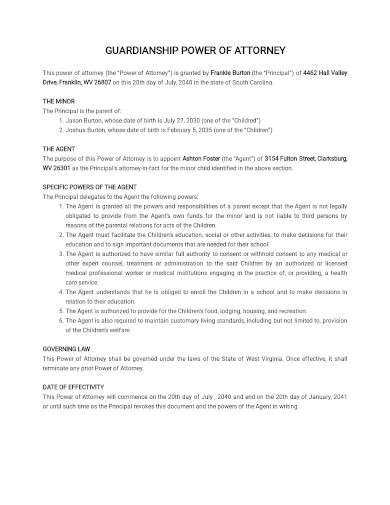
2. Durable Power Of Attorney For Child
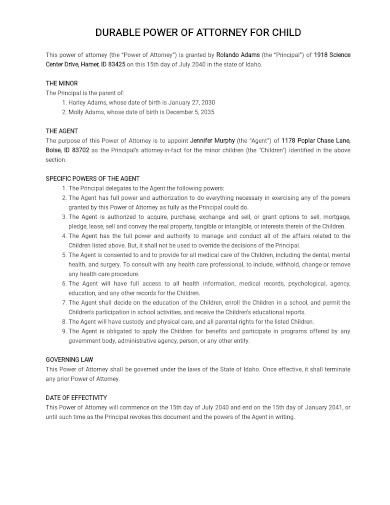
3. Medical Power of Attorney For Child
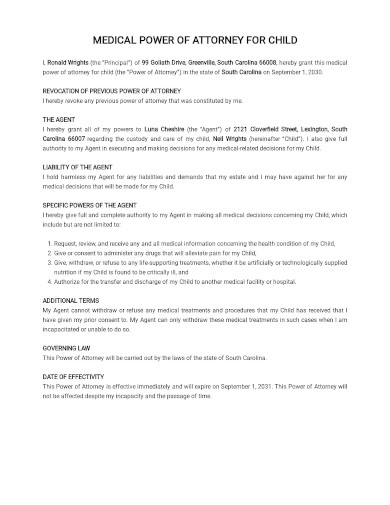
4. Caregiver Child Power of Attorney
5. Power of Attorney for Minor Child
6. Child Care Power of Attorney
7. Sample Child Power of Attorney
8. Simple Child Power of Attorney
9. Child Power of Attorney Example
10. Formal Child Power of Attorney
11. Printable Child Power of Attorney
What Is a Child Power of Attorney?
An agent can represent a principal with a power of attorney in any situation where state law allows it, as long as they are authorized to do so. In this type of arrangement, the agent may be given authority to manage the principal’s bank accounts, sign checks on the principal’s behalf, sell property, manage assets, and file taxes on the principal’s behalf. When selling a home, the real estate agent may also be in charge of asset management.
Writing a Child Power of Attorney
There’s no reason to believe that just because you signed a power of attorney letter, you can’t exercise your own power and authority. Both of these things are still possible. Even if you and your Agent disagree on the best course of action, you must ultimately make the decision. Consult an attorney before attempting to write a letter authorizing a power of attorney. This will save you time and effort in the long run. Follow the steps outlined in the following paragraphs to write the letter:
- Come up with a draft
To begin, you must list all of the abilities that your Agent can have. The first step is to devise a strategy. Because each account, property, and transaction is unique, you must clearly outline to your Agent which accounts, properties, and transactions he or she will be responsible for. This is due to the fact that your Agent will be looking after them. - Make decisions about springing powers
It all depends on whether it can return to its natural habitat. Before the Agent can use these abilities, certain events or conditions must occur. Both of these events must occur before the Agent can use these abilities. The Agent is not legally permitted to act on your behalf until a condition or event requiring that power occurs. This power is built into your letter, so even if the form of power you’re using doesn’t call for it, your letter will still work once you sign it. - Choose your agent and successor
The most important part of writing this letter is deciding who will represent you. To proceed, you must have complete faith in the Agent you choose. If your first choice is unavailable, it is strongly advised that you select a backup agent. - Add the expiration date
It is critical that you specify in the letter that the authorization you are granting your Agent is only valid for the time period you specify. In contrast, a “durable power of attorney” ensures that your wishes are carried out even if you die. Even if you are paralyzed, the actions you take will have an impact on your life. Whatever type of letter you write, keep in mind that your power will end the moment you die. - Finalize the document
You can begin writing your letter as soon as you have all of the necessary information. When discussing the content of the document, make sure to do so in a clear and understandable manner. To avoid confusion, include the full names of all three parties in your letter. The letter must also include the date it was written.
FAQs
What is the difference between the power of attorney and a letter of authorization?
Despite being written for very different reasons, these two letters have a lot in common. You have the authority to act on behalf of another person if you have a letter of authority. Once all of the tasks on the letter of authority have been completed, the person who received it must close it. The power of attorney authorization letter, on the other hand, gives the assignee broad authority.
Who can override power of attorney?
A power of attorney (or POA) is a legal document that allows one person (the agent) to make decisions on behalf of another person (the principal). The person who is given power of attorney has the right to revoke it at any time while they are still of sound mind.
What is the best form of power of attorney?
A broad or limited power of attorney can be created. A general power of attorney gives the agent broad authority to act on behalf of the principal. This is the best option if you want the person in charge of your care and finances to have as much freedom as possible.
If you are unable to do something for yourself for a variety of reasons, a power of attorney letter authorizes someone else to do it on your behalf. When more than one person’s name appears on bank accounts, real estate, or brokerage accounts, a power of attorney is required. It makes no difference if the account has two or more names. If you ever need a power of attorney, you can use any of the letters of authorization for powers of attorney in this post.
Related Posts
FREE 5+ Lease Power of Attorney Samples in PDF
FREE 10+ Property Power of Attorney Samples in PDF | MS Word | Google Docs
FREE 6+ Special Power of Attorney Samples in PDF
FREE 5+ Business Power of Attorney Samples in PDF
FREE 10+ Health Care Power of Attorney Samples in PDF | MS Word | Google Docs
FREE 6+ Company Power of Attorney Samples in PDF
FREE 5+ Affidavit of Desistance Samples [ Case, Settlement, Claim ]
FREE 10+ Affidavit of Funeral Expenses Samples [ Claim, Cost, Benefits ]
FREE 6+ Affidavit of Translation Samples in PDF
FREE 2+ Supporting Deposition Samples in PDF | MS Word
FREE 9+ Sample Orders to Appear in PDF
FREE 5+ Mortgage Deed Samples & Templates in PDF
FREE 13+ General Power of Attorney Templates in PDF | MS Word
FREE 19+ General Affidavit Samples and Templates in PDF
FREE 9+ Patent Assignment Samples and Templates in PDF

